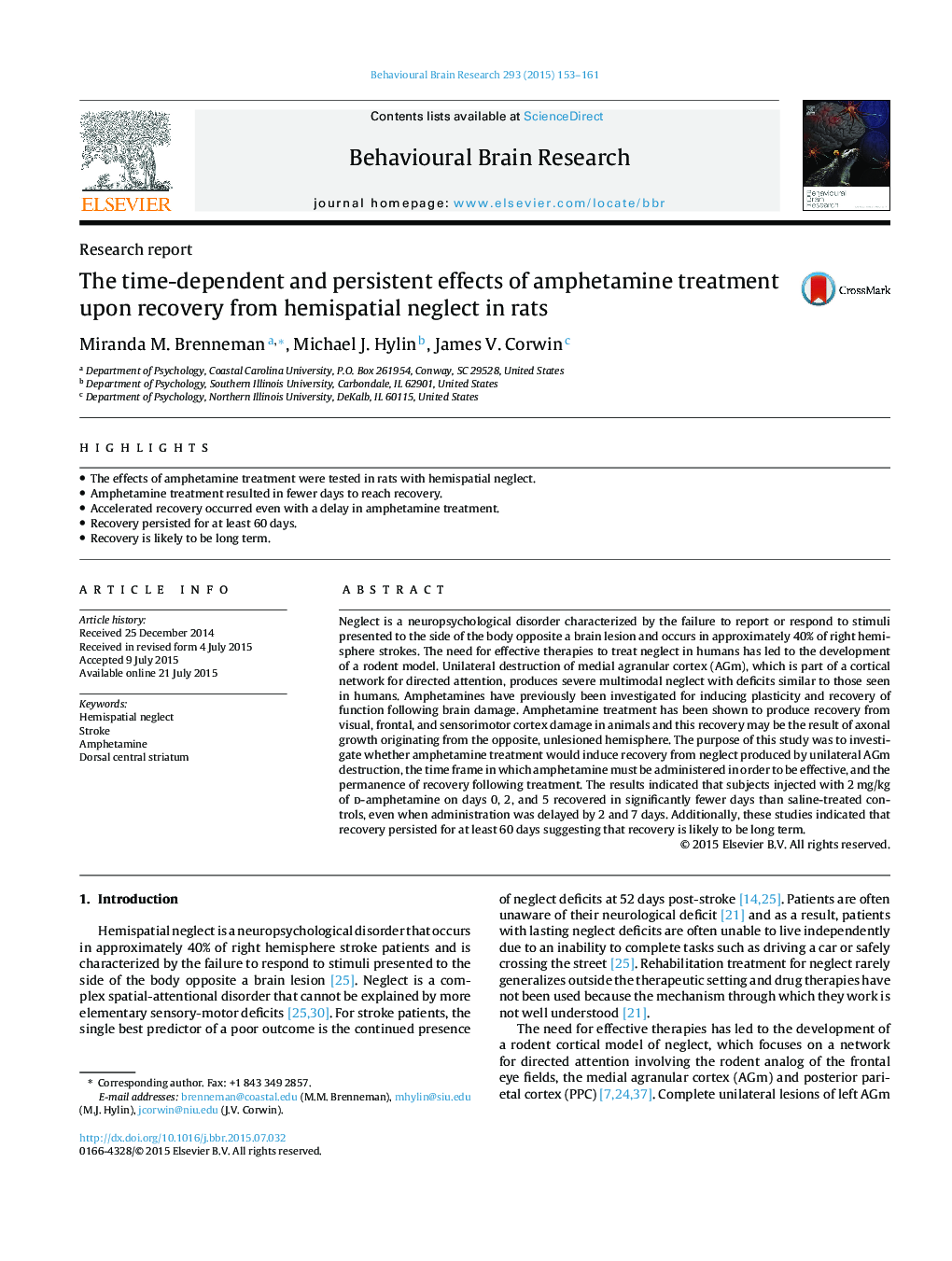| کد مقاله | کد نشریه | سال انتشار | مقاله انگلیسی | نسخه تمام متن |
|---|---|---|---|---|
| 6256618 | 1612939 | 2015 | 9 صفحه PDF | دانلود رایگان |
- The effects of amphetamine treatment were tested in rats with hemispatial neglect.
- Amphetamine treatment resulted in fewer days to reach recovery.
- Accelerated recovery occurred even with a delay in amphetamine treatment.
- Recovery persisted for at least 60 days.
- Recovery is likely to be long term.
Neglect is a neuropsychological disorder characterized by the failure to report or respond to stimuli presented to the side of the body opposite a brain lesion and occurs in approximately 40% of right hemisphere strokes. The need for effective therapies to treat neglect in humans has led to the development of a rodent model. Unilateral destruction of medial agranular cortex (AGm), which is part of a cortical network for directed attention, produces severe multimodal neglect with deficits similar to those seen in humans. Amphetamines have previously been investigated for inducing plasticity and recovery of function following brain damage. Amphetamine treatment has been shown to produce recovery from visual, frontal, and sensorimotor cortex damage in animals and this recovery may be the result of axonal growth originating from the opposite, unlesioned hemisphere. The purpose of this study was to investigate whether amphetamine treatment would induce recovery from neglect produced by unilateral AGm destruction, the time frame in which amphetamine must be administered in order to be effective, and the permanence of recovery following treatment. The results indicated that subjects injected with 2Â mg/kg of d-amphetamine on days 0, 2, and 5 recovered in significantly fewer days than saline-treated controls, even when administration was delayed by 2 and 7 days. Additionally, these studies indicated that recovery persisted for at least 60 days suggesting that recovery is likely to be long term.
Journal: Behavioural Brain Research - Volume 293, 15 October 2015, Pages 153-161
